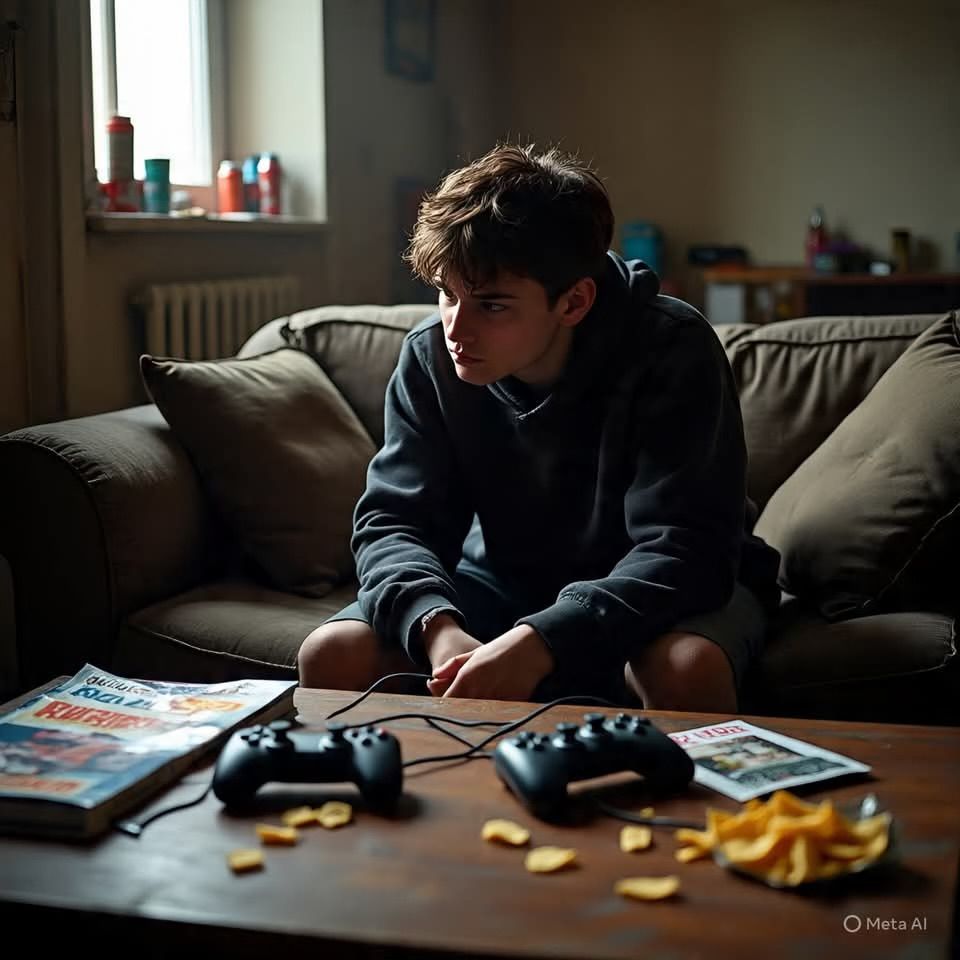Calm and Consistent Consequences: 4 Practical Strategies for Parents
We all know that one of the biggest challenges as a parent is responding effectively when a child misbehaves. We kinda know we’re not supposed to shout, but what if we’re all out of ideas and they’re still not listening?
Children tend to learn best when consequences are calm, consistent, and predictable. Fortunately, this is easier than you’d think: I find that confidence and calm come from staying one step ahead of the situation.
Below are four simple, practical strategies that you can use to reduce conflict and teach accountability - without constant battles or raised voices.
1. Bitter Before the Sweet
Children often resist chores or routines because the payoff feels too far away - or sometimes it’s because they’re doing something fun instead. Structuring the day so that the “bitter” (necessary tasks) comes before the “sweet” (fun activities) takes much of the struggle out of consequences.
- In the morning, this might mean: get dressed → breakfast before screen time.
- In the evening: homework → tidy up before free play or dessert.
When a child hasn’t done what’s required, you don’t need to lecture or punish - you simply point back to the structure: “When you’ve helped tidy up, then the tablet is ready.” The consequence is built in.
This approach creates clarity, reduces arguments, and helps children understand that privileges are earned, not automatic. This works especially well when you can afford to wait them out, since it’s their free time they’re losing.
2. Do-Overs and Making Things Right
Not every mistake needs to lead straight to a penalty. Sometimes, what a child needs most is the chance to try again or to repair the harm they caused.
- A do-over: If your child rudely demands a snack, you might say, “Try that again with better manners, please, and then for sure you can have some toast.”
- Making things right: If they spill water, the consequence is mopping it up. If they hurt a sibling’s feelings, writing a short apology note helps rebuild the relationship.
The beauty of this method is that it teaches responsibility while preserving connection. If you’re serious enough about it then you can also combine it with one of the other methods, like delaying whatever’s next in the day until they’ve fixed the situation up.
3. The Timer Method
For delays, refusals, or transition struggles - like coming off a device or getting ready to leave - the timer method is highly effective. It can be used for any situation where there’s still chance for the child to fix things up and turn their behaviour around.
The way it works is you set a timer once you’ve given the instruction and you’ve counted to 3. However many minutes tick by before your child complies are minutes deducted from an upcoming privilege:
- “It took you three minutes to come off your game once I started the timer, so you’ll lose three minutes from tomorrow’s screen time.”
- “You took five minutes to start getting dressed, so five minutes comes off your bedtime story.”
This approach externalises the consequence. Instead of arguing, you can calmly point to the timer: “The minutes are adding up - it’s your choice - we can do your shoes together if you need help.” It helps children see that their actions directly shape their privileges.
4. Docking a Privilege
When a behaviour is clearly unacceptable - like swearing, aggression, or repeated disrespect - sometimes a fixed consequence is needed. Compared to the timer method for ongoing situations, this is often best for things that have already happened.
Docking a privilege is straightforward and effective:
- Swearing: lose 10 minutes of screen time or $1 of pocket money.
- Aggression: no tech for 24 hours.
- Riding the bike without a helmet: lose the bike for a while.
The key is to scale the consequence to the behaviour and to be clear and consistent in how it’s applied. Children learn that privileges come with responsibilities, and that crossing certain lines carries predictable costs.
Final Thoughts
Consequences don’t need to be angry or excessive. When they’re calm, consistent, and clearly proportionate to the behaviour, they teach children far more effectively.
- Bitter Before the Sweet builds structure.
- Do-Overs and Making Things Right teach repair and respect.
- The Timer Method encourages responsibility for time and transitions.
- Docking a Privilege sets firm boundaries around unacceptable behaviours.
Of course, even with these tools, it’s normal not to get it right every time. Parenting is a constant learning process - but with practice, the conflicts do tend to resolve more peacefully over time. Without losing the sense of closeness and teamwork, or losing your temper, your child can gradually learn that you mean what you say.









